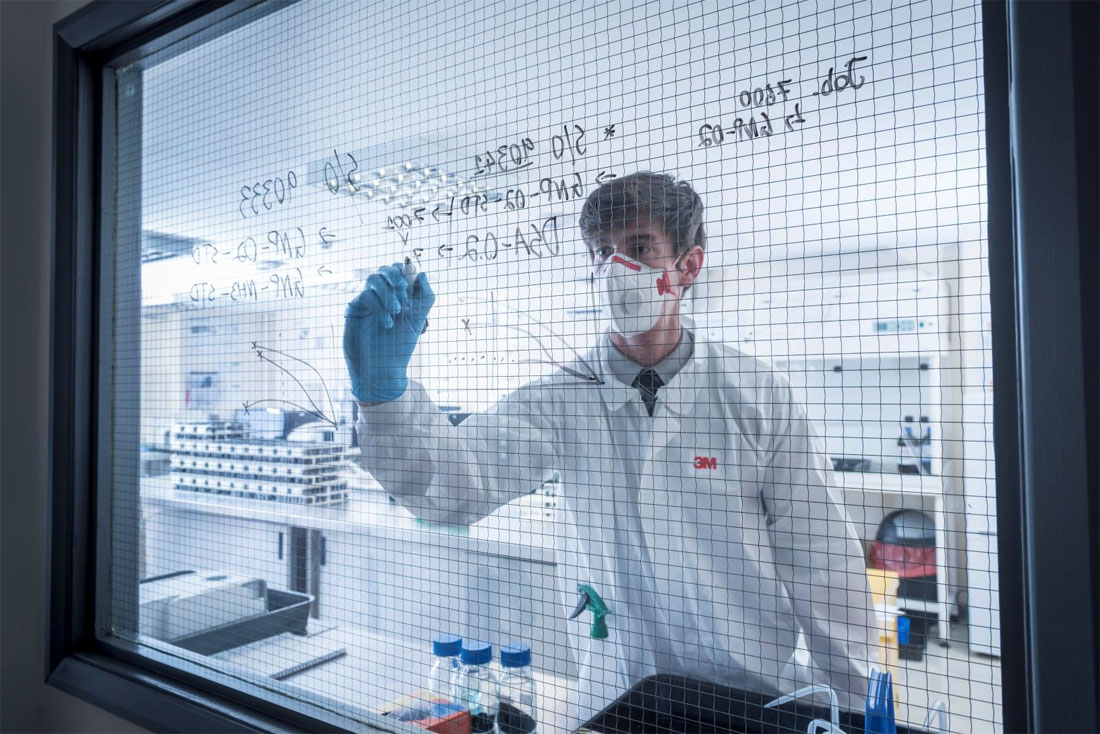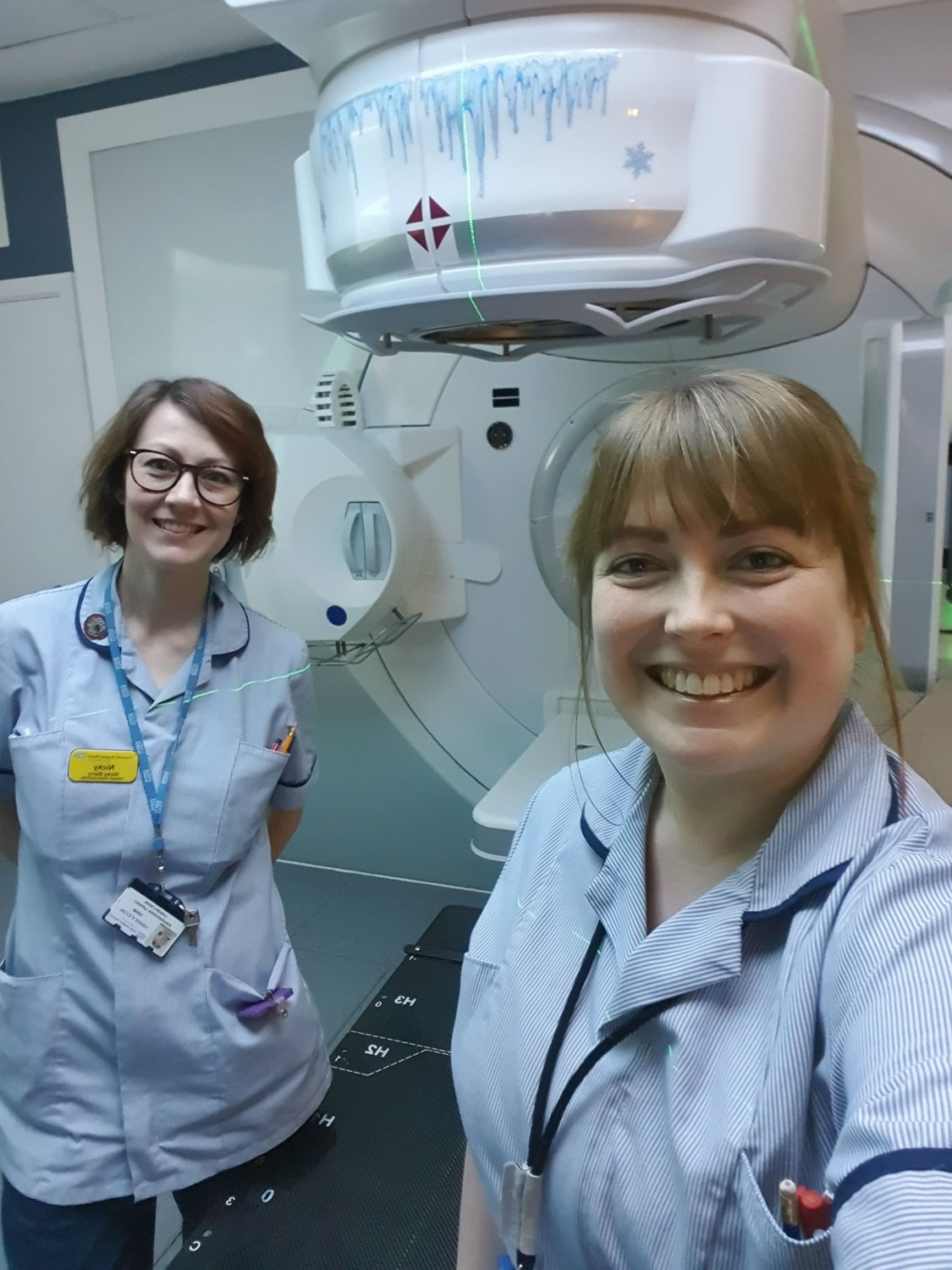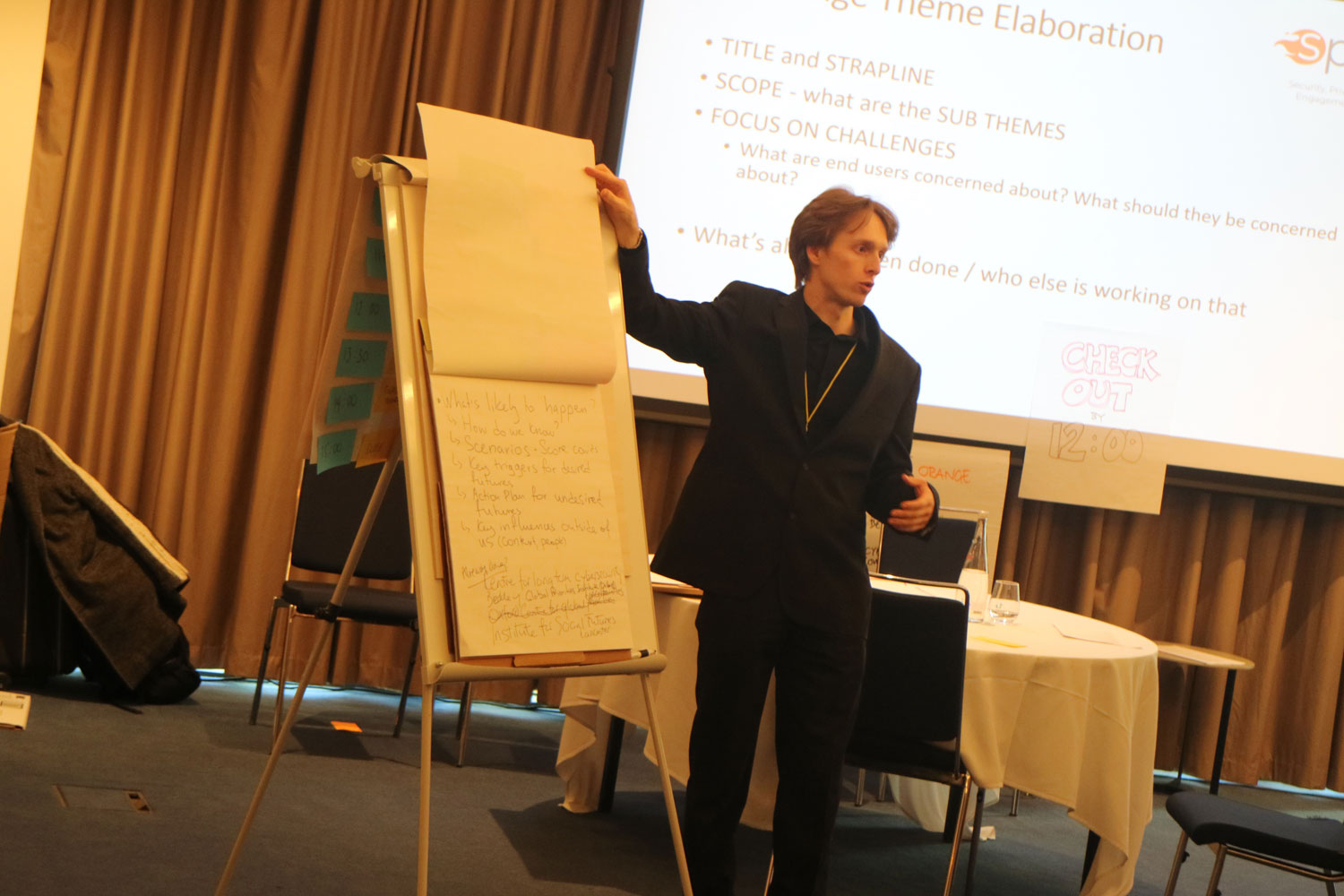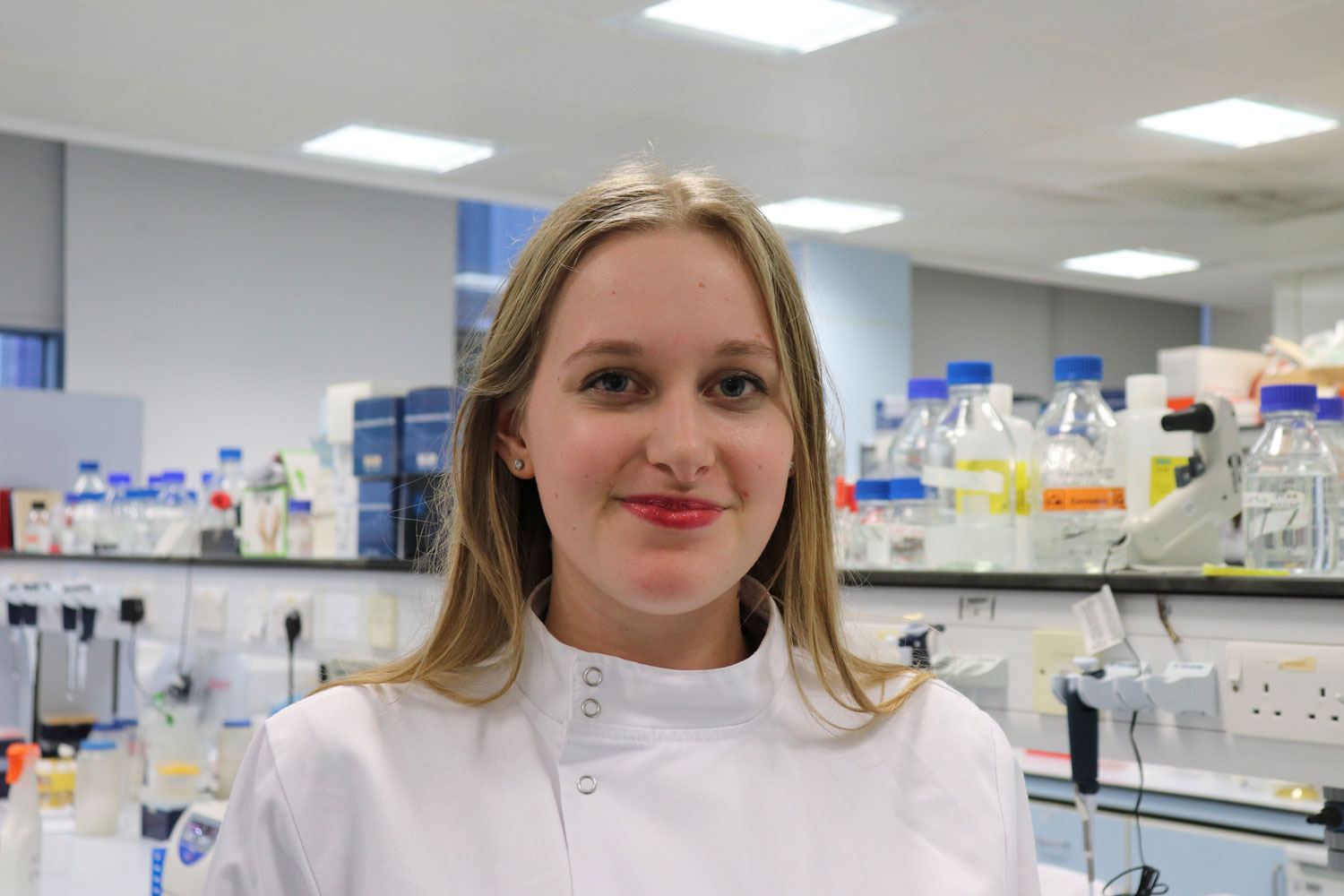
Our Ambassadors are volunteers from varied Science, Technology, Engineering or Maths (STEM) industries and academia who work, study or research in a STEM field. Through our team they get opportunities such as visiting schools and encouraging kids to study STEM subjects, being featured in the museum holiday programmes, or writing blogs like this—basically, anything that helps other people understand why STEM subjects are so important and that STEM careers are for everyone. Our ambassadors are passionate about what they do and have a real desire to pass on their enthusiasm and inspire the next generation.
For National Careers Week, we asked our STEM Ambassadors to reflect on their STEM career journey. With the theme for National Careers Week 2020 being “our hopes for the future” and British Science Week themed around “our diverse planet”, we asked them to consider what the future of their role looks like and what visions or challenges the next generation could face in their job sector and in relation to our ever changing world.
Laura Savage and Nicola Barry
THERAPEUTIC RADIOGRAPHERS FOR THE NHS
What’s your job like?
Radiotherapy contributes to 40% of all cured cancers in the UK; however, it remains very much under the radar and isn’t spoken about as much as it could be! It is a versatile treatment option that can be used to cure patients or to help their pain for short periods of time. Therapeutic radiographers are dynamic, adaptable and constantly changing their ways of working to move forward into the technological future. This is making the world better as these new treatments mean more patients are surviving their cancer journeys and with fewer lasting side effects from the treatment.
What do you think will happen with your job in the future?
The future of cancer treatment is always changing, and there are huge numbers of trials that form our evidence-based practice and shape how we tackle every patient that we treat. We will be able to offer faster, more tailored treatments, and with research scientists and oncologists always working towards a cure and better treatments for all cancer types, this means that radiotherapy may not feature as part of a standard treatment line-up into the future.
How do you think your job will change in relation to the changes in the planet and society?
We are looking at our environmental impact, such as cutting down on the amount of paper and other disposable hospital supplies we use, and many hospitals have made pledges to cut down the amount of plastic being used across their sites. This is particularly challenging in a place where hygiene and infection control is so vital, and where various types of waste must be properly managed.
With an ageing population becoming more prominent and with diagnostic tests being more accurate, radiotherapy will continue to play a vital part in patients’ cancer journeys with researchers constantly adapting our treatments to make them more effective and more favourable for the patient. We need therapeutic radiographers with many transferable skills who can utilise science, technology and maths in their day to day working life, as well as needing clear communication skills. It is such a rewarding career and there are many options to try new roles and pathways, as well as furthering your education into different areas.
Dmitry Dereshev
RESEARCH ASSOCIATE IN CYBERSECURITY AT THE UNIVERSITY OF MANCHESTER
What’s your job like?
Ever since personal computers became widespread, and the internet took off, almost everything today is controlled, monitored or influenced by computers. Nations trade their wealth using automated systems on stock and currency markets; your education, pension, banking and medical records are likely stored in a digital database; you connect to your friends online, and can even look at what yours or someone else’s cat or dog is doing at home through a web camera. All of these records, trades, and transmissions are suspect to attacks, and cybersecurity provides the necessary assurances that the benefits of using computers far outweigh the risks.
What do you think will happen with your job in the future?
Much like we now expect every company to have a website and perhaps a social media presence, the academic industry is becoming even more digitally focused. Many academic degrees are connected to the digital sphere, from programming to digital creative arts. These degrees really do not require you to attend a physical university and sit through the lectures. Several universities already provide online courses that they certify, and I expect this trend to continue in line with the rising expectation people have about instant access, and widespread availability of services through the internet.
How do you think your job will change in relation to the changes in the planet and society?
To be a successful academic you need to have high autonomy, motivation, vision and critical thinking, backed up by strong ethics and communication skills. I don’t think these high-level requirements will change. Right now, and in the future, I see that we need more people who can work across disciplines and industries, with a variety of technical and social skills. It is easier than ever to learn a new skill online, and being able to fit into different industries and cultures can promote collaboration, which we all so desperately need in the ever-more connected world we live in.
Maria Eftimova
CIVIL ENGINEER FOR COSTAIN
What’s your job like?
Civil engineers who work in the wastewater sector have developed wastewater treatment plants to protect the environment and provide clean water. Only 1% of all water on Earth is freshwater for drinking. Globally we are in a water crisis. There is an increasing demand for water and as populations increase, the need for water increases. Essential for life, clean water is one of the most important natural resources on the planet. Wastewater is also a valuable resource. It contains many harmful substances and cannot be released back into the environment until it is treated. Wastewater treatment restores the water supply and protects the planet from toxins. Wastewater treatment is essential for human health and the environment preservation.
What do you think will happen with your job in the future?
As populations grow in our towns and cities, we are seeing vacant land becoming a lot less accessible; therefore, space would have to be utilised more efficiently. A wastewater treatment plant in the future would have to incorporate new methods that consume a much smaller footprint. Additionally, tomorrow’s treatment plants would have to look at reducing their electrical energy consumption and create processes in which emissions are reduced.
How do you think your job will change in relation to the changes in the planet and society?
I believe that my industry will become more energy efficient and new innovations could change the way we purify water, making the process a lot faster and cheaper. Skills needed to meet these future demands include leadership skills, ability to work well in a team and the ability to be innovative.
What does the term ‘diversity’ mean to you?
Diversity in regard to biodiversity boosts ecosystem productivity where each species, no matter how small, all have an important role to play. For example, a larger number of plant species means a greater variety of crops. Greater species diversity ensures natural sustainability for all life forms. Improvements in wastewater treatment in the UK over the past 30 years are linked to improvements in river biodiversity. The water results in being cleaner due to a reduction in ammonia (a chemical present in human sewage that is potentially toxic to animals).
Nicola Edwards
CARDIOVASCULAR SCIENTIST BASED AT MANCHESTER METROPOLITAN UNIVERSITY
What’s your job like?
Our world is facing a problem of overpopulation, limited resources and inequality. Biomedical research must keep up to ensure healthcare is available to all, especially those who need it the most. One way of doing this is to increase understanding of complex conditions and make the process of diagnosis more efficient so that patients can be treated quickly.
Research is crucial because otherwise people will not be diagnosed or will be given ineffective treatment, if they have access to treatment at all. Research has the power to save lives and reduce suffering, which is key to human survival. I believe the future of biomedical research lies in tackling health inequality and addressing the needs of a growing population with restricted resources.
This can be achieved by expanding our understanding of under-researched, or otherwise ‘complex’, areas such as lupus, female health and conditions that affect minority groups. We also need research to create efficient and widely available technologies, such as personalised medicine, to treat the individual in a rapidly shifting world. The threats of overpopulation and limited resources mean our future treatments will need to be both affordable and effective—antibiotic resistance is becoming a huge problem and we need to find alternative solutions fast!
What do you think will happen with your job in the future?
Progress in my field is moving very quickly and one of the main goals for the future is personalised medicine. We are now realising that people experience health and disease very differently—some people get better quickly, and some take longer or don’t respond to the same medications. To address this, we are embracing new technologies to provide precision medicine. In particular, I aim to identify a panel of biomarkers for cardiovascular disease in lupus—these are tiny particles that can be measured in the blood and can not only quantify disease risk but can also give doctors an idea of which medicines will work best for that particular patient. Imagine giving a simple blood sample and receiving personalised, tailored treatment to your specific health needs to give you the best chance of a speedy recovery!
How do you think your job will change in relation to the changes in the planet and society?
I believe the most important skills for the next generation of researchers are to be determined, creative and compassionate. We are no longer isolated in our laboratories, but part of a global network and we need to work together to face what comes next!
What does the term ‘diversity’ mean to you?
To me, diversity means listening to and sharing with people of all different backgrounds. Communication and collaboration are key in my area because, as researchers, we need to share ideas and techniques across fields in order to innovate and progress in science. How are we supposed to grow if we don’t step out of our ‘box’? How is our research supposed to reflect our world if we are not part of it?
As a woman from a low-income area, the importance of diversity and inclusion in the sciences is extremely important to me. When I visit schools, I ask the students to draw their perceptions of a scientist and more often than not, I receive pictures of middle-aged, Caucasian men. Instead of reflecting the diversity of the classroom, we believe from an early age that a scientist can only be a certain way. This is not the case! I don’t believe this kind of thinking has any place in the future of STEM—the best science is performed when we are open, inclusive and unified. We are a diverse people and our science should reflect that!
Sarah Hilton
GENOMICS HEALTHCARE SCIENTIST TRAINEE FOR THE NHS
What’s your job like?
Genomics is on the cutting edge of healthcare science as it sheds light on the underlying mechanisms of disease and health in every aspect of medicine. In the next few decades, it is likely that genomic scientists will be at the forefront of evolving diagnostic and therapeutic interventions. Areas of interest are diagnosis of rare diseases, therapeutic strategies in inherited diseases with limited treatment options (such as Duchenne muscular dystrophy) and revolutionising the management of cancer. If we are to stand any hope of maintaining our world-regarded standard of medical care in this country, we must continue to invest and develop in genetic medicine.
What do you think will happen with your job in the future?
Genomic scientists must be highly motivated, which is easy when considering the amazing improvements that are only just over the horizon. Alongside this enthusiasm for the possibilities of genetically informed personalised medicine, we need patient centred and dedicated staff who can critically appraise the information presented and have the endurance to persevere even when encountering seeming dead ends. It is vital that our next generation of scientists can adapt to work with the AI and machine learning technologies that will be critical in taking genetic medicine forwards.
How do you think your job will change in relation to the changes in the planet and society?
We live in a world where genetic medicine remains in its infancy and only as we uncover the way that genetics influences every aspect of health have, we realised just how much suffering can be improved or removed entirely. We can now appreciate the genetics explaining multiple devastating events such as miscarriages and are developing strategies to manage this.
Unravelling the vast quantities of information hidden inside the DNA of any organism requires huge amounts of processing power, and so genetic medicine departments are investing in both the required hardware and software to accomplish this. Machine learning and artificial intelligence are likely to prove crucial to processing and interrogating all this information for clinically useful outcomes.
If you’d like to become a STEM Ambassador, would like to arrange a school/class visit or have a project you’d like STEM Ambassadors to be involved with, find out more about the scheme here.


